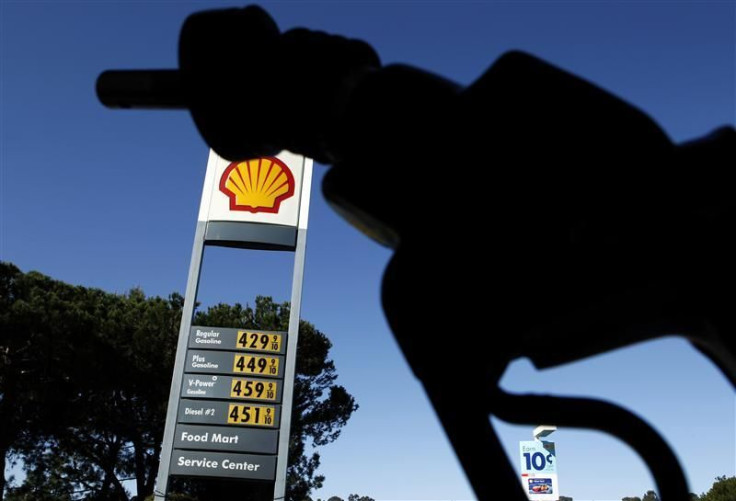Will Obama Release Oil From Strategic Reserve to Control Gas Prices?

With crude inching higher in tandem with international tensions and gas prices threatening to emerge as the most important election question, President Barack Obama has painstakingly tried to project his energy policy in a favorable light.
He extended support for the construction of the southern leg of the Keystone XL pipeline and said his commitment to building oil infrastructure was unwavering.
With political pressure mounting, the talk about release of crude from the U.S. Strategic Petroleum Reserve (SPR) has come back. Will the President decide to release the country's reserves in a last gasp effort to stem the gas price spike? And if he does, what kind of impact will it have on prices?
The White House last week rubbished similar speculation and termed reports that said the U.S. and Britain agreed on the use of strategic reserve as “inaccurate.”
However, Obama's apparently desperate efforts to swing the oil debate in his favor have brought back talk about releasing crude from the strategic reserve.
Obama is losing the political oil war — badly. He very much needs to be seen as “doing something,” regardless of whether it has long-term positive effects. Releasing oil from the strategic reserve fits the bill. It will happen, Christian A. DeHaemer wrote in Wealth Daily.
DeHaemer says last week's oil policy spin by Obama was out of character, and dictated by his more politically-savvy advisers.
This week, Obama went to the pipeline capital of the world, Cushing, Oklahoma, where he crowed about a new pipeline that neither he nor the federal government had anything to do with, he noted.
The President's public declaration of commitment to the development of oil infrastructure, made in Cushing, the so-called pipeline capital, pleased neither the industry and its Republican allies nor environmentalists, the New York Times also commented.
In the Cushing speech, Obama also addressed the Republicans' sharpest attacks -- that his administration's policy on oil pipelines and drilling has contributed to the rise in gas prices in the country.
Anyone who says that we're somehow suppressing domestic oil production isn't paying attention ... And anyone who says that just drilling more will bring gas prices down just isn't playing it straight, the president continued. We are drilling more. We are producing more. But the fact is, producing more oil at home isn't enough to bring gas prices down overnight, he said, according to CNN.
Consistent with his administration’s long-term policy, Obama insisted Friday that the Middle East tensions invariably have an impact on gas prices.
The key thing that is driving higher gas prices is actually the world's oil markets and uncertainty about what's going on in Iran and the Middle East, and that's adding a $20 or $30 premium to oil prices, Obama told the American Automobile Association (AAA) in an interview.
He said in the Cushing speech that a drilling hyper drive in the country will not eliminate the continued price spike. Even if we drilled every little bit of this great country of ours, we'd still have to buy enough from the rest of the world to meet our needs.
Obama also asserted that America's dependence on foreign oil has come down every years since he came to power in 2009.
But analysts say these assurances may not be enough to convince voters.
The one political lesson of the past 40 years is that people don't like to pay high prices at the pump — and they won't vote for people who they see as taking money directly out of their pockets once or twice a week, DeHaemer notes.
This opens the possibility of the administration deciding to release crude from the Strategic Petroleum Reserve, according to him.
Will such a move serve the purpose? He says yes.
DeHaemer cites a Morgan Stanley report that says if oil is released from the U.S. reserve stockpile, the price would drop 8 percent within the first two days. Prices would be 6 percent lower within ten days.
He also notes that when President Bill Clinton took this route in 2000 the general perception on both the Main Street and the Wall Street was positive.
The Washington Post had cited an oil consultant as saying that the release of the strategic reserve was a near certainty. “It’s more when rather than if. Washington is getting ready for it. How much and when I’m not sure, but I imagine in time for spring gasoline season,” Bob McNally, president of the consulting firm Rapidan Group, told the Post.
However, many analysts believe that the use of crude from the SPR will only have negligible impact.
James Hamilton, economics professor at the University of California, San Diego, wrote in Consumer Energy Report on March 20: I see no evidence that last year’s SPR release accomplished anything, and would not expect the outcome of another release this year to be very different.
The Organisation of Economic Cooperation and Development (OECD) members had released 60 million barrels of crude from their joint stockpiles last year. The U.S. had contributed half of that. There was an initial modest drop in the price of oil on the day of the announcement, though within two weeks the price was back up above where it had been before the announcement, Hamilton wrote.
Right now, the SPR holds more than 700 million barrels of crude in giant Gulf Coast salt caverns.
West Texas crude closed at $106.75 on Friday while Brent closed at $125.1. The news that China's manufacturing activity slipped to a four-month low in March weighed on most commodities, but Iran supply tensions gave crude a late burst around the weekend.
© Copyright IBTimes 2024. All rights reserved.





















